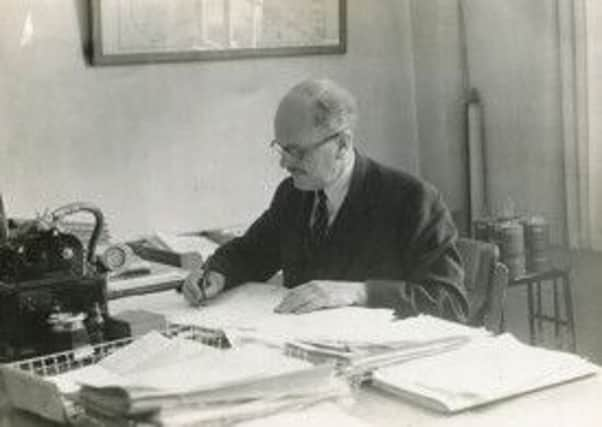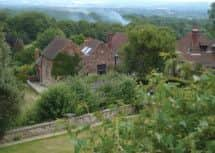Sussex Heritage: New correspondence delves into Churchill’s life at Chartwell


Toovey’s paper collectables specialist, Nicholas Toovey, has uncovered a small archive of photographs, letters, telegrams and notes, which document the Churchills’ relationship with their friend and estates manager, Percy Cox, OBE. The correspondence and images give a very personal insight into life at Chartwell. The Percy Cox Archive is to be auctioned in November at Toovey’s.
Churchill’s youngest child, Lady Mary Soames, has written that her father was “captivated by Chartwell from the moment he set eyes on the valley, protected by the sheltering arm of beautiful beech woods… and by the house on the hillside”. As you stand on the terrace at Chartwell, you are presented with a southerly view over the gentle landscape of the Weald of Kent; it speaks of an older England.
Advertisement
Hide AdAdvertisement
Hide AdUnsurprising, then, that this scene so inspired our greatest war-time Prime Minister. Whenever the English find themselves under threat, they turn to their monarch, their church and their landscape; our nation’s identity is bound together by these timeless threads.


An hour from London, Chartwell between the wars hosted a cast which included politicians, scientists and intellectuals. Among these were Lord Beaverbrook and Lord Camrose, the powerful proprietors of The Daily Express and The Daily Telegraph, and T.E. Lawrence and Charlie Chaplin. Famously, debates after dinner would continue into the early hours.
Churchill’s fortune from writing was severely affected by the financial crash of 1929, which signalled the arrival of the Great Depression. Life at Chartwell was always accompanied by financial worries and these coloured Churchill’s wife, Clementine’s view of their country home. By 1946 there were concerns as to whether the Churchills would be able to continue living at Chartwell.
Winston Churchill always felt his roots were at Blenheim, where he was born in 1874. Blenheim had been given to John Churchill, the 1st Duke of Marlborough, by Queen Anne and a grateful nation after his victory at Blenheim in 1704. Lord Camrose felt it wrong that Winston Churchill, the great war-time leader, could lose his home. With resonances of the gift of Blenheim, he and a group of wealthy men anonymously purchased Chartwell, on the express understanding that the Churchills would continue living there undisturbed until the end of their days, after which it would be given to the National Trust.
Advertisement
Hide AdAdvertisement
Hide Ad